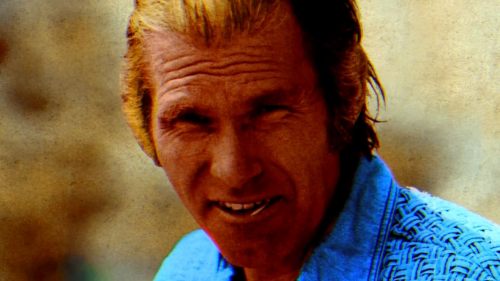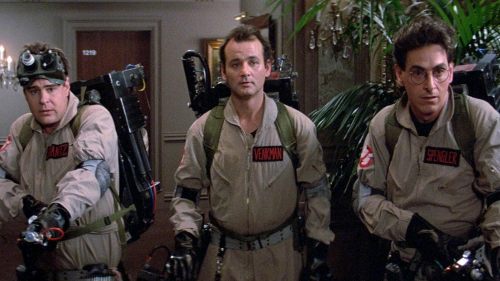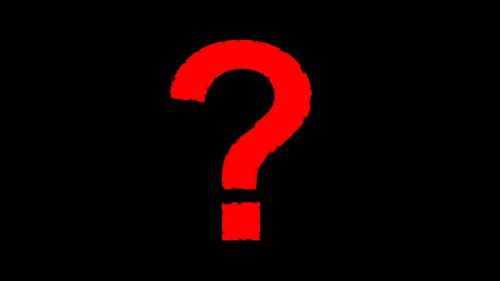Collins’ Crypt: 2020’s Horror Will Be Defined By… What?
As I write this, and again as you read it a few hours later, someone will be arguing on Twitter about whether or not they should be discussing their favorite films (or albums, or books, or sandwiches) of the decade when there's still technically a year left. It must be nice to have nothing else to worry about and get to use that energy on "I'm going to tell this guy that he should have included Inception on his previous decade list, not this one, nyeah!", but for the rest of us who have more pressing matters to stress over, the books are about to close on the 2010s and a new decade (or "decade") is upon us. And for me that means one thing, and one thing only: what will 2020's horror be like?
There are exceptions and some wiggle room, but in general terms, every decade has come to be known for being heavy with one or two sub-genres of scary movies. The 1950s gave us the giant bug and other "atomic monster" types, and the '80s were the era of the slasher and (in the later half) the creature/FX extravaganzas that offered the peak of the form before digital took over. Horror fans in the 2000s were often torn between the hardcore "torture" horror films like the Hostels and Saws (and their many wannabes) and the remakes, thanks to the early success of The Ring (2002) and Texas Chainsaw Massacre (2003). And then thanks to the success of the Paranormal Activity and Insidious films (series that began in 2009 and 2011, respectively), the 2010s were loaded with similar supernatural terrors, while the advent of VOD and other limited release avenues allowed dozens of niche productions like The Witch and The Invitation to make splashes that they might not have in previous decades.
This is because of the simple fact that the horror genre is beholden to trends in ways most of the other genres are never able to benefit from. Take the Western, for example - every few years there's a sizable Western hit (True Grit, Django Unchained, etc.) but that doesn't inspire a wave of such films - we still only get one a year, tops. Disney and Universal are the only ones who seem to be making musicals on a regular basis; even La La Land's success (and brief win for Best Picture!) didn't seem to encourage the others to follow Lionsgate's lead and muscle in on their territory. Even comedies don't seem to benefit from the copycat style anymore; whereas twenty years ago the success of American Pie led to a few years' worth of mostly forgotten like-minded comedies (Tomcats, anyone?), the huge success of Girls Trip in 2017 made Tiffany Haddish a star, but hasn't produced a wave of imitators.

But horror? If you make $50m there's gonna be a sequel and at least half a dozen wannabes within a year, and will continue indefinitely since many of them have long shelf lives. And we love revivals; the slasher may have had its glory years in the early '80s, but that just made the success of Scream (1996) and Happy Death Day (2017) all the more satisfying, just like we can appreciate the occasional shark hit like The Shallows or 47 Meters Down even though Jaws will never be topped. The sub-genres may have their time in the sun, but they never truly die; believe it or not, there are still found footage movies being made, even though the last one to make a big splash at the box office was M. Night Shyamalan's The Visit in 2015, and last year's Pledge did its best to keep the "torture" movie alive while we wait for next year's Saw revival (the second attempt at returning the series to its former glory after 2017's moderately successful Jigsaw).
So again, what will come to define 2020s horror, the way Exorcist clones and "tourists get killed" movies defined so much of the 1970s? We can assume something will make a big comeback, but what? My dreams for a full blown slasher revival seem to be just that; for every big success like the aforementioned Happy Death Day, there's a dud, like, er, Happy Death Day 2U, and outside of Hell Fest (not a big hit either), there hasn't been an original R-rated entry in the sub-genre hitting multiplexes for ages. The body count flicks are out there, but you have to stay home to find them, which isn't how these trends work. I also wouldn't hold my breath for a giant monster revival, as audiences in the US continually shrug their shoulders at the likes of Godzilla and Pacific Rim, while the success of The Meg can be chalked up to our never-ending love of shark movies (just not their sequels, as 47 Meters Down: Uncaged failed to live up to the heights of its predecessor).
And hopefully it won't be supernatural/haunting movies again; while I enjoy the Conjuring films and some of the spinoffs (Annabelle Comes Home was quite good, in my opinion) I'd be fine with never hearing about the Warrens for a while after Conjuring 3 is released next year. Such films have never been my favorite kind of horror anyway, but I can easily be sucked in by a crafted entry (like the original Conjuring) every now and then - unfortunately a new one comes along every month or so, and are seemingly designed to make you jump every five minutes instead of giving us characters to care about or an interesting story to tie them to. Thankfully, the numbers for these kinds of movies seem to be declining, so perhaps audiences at large share my sentiment that it's time to move on from this sort of thing for a bit, and let them be the exception instead of the rule.

One kind I would definitely enjoy seeing on a large scale again is the zombie film. While Walking Dead and its spinoffs have had TV covered for years, there's been a shocking dearth of big-screen undead movies over the past five years or so, and those few exceptions are pretty much all comedies. Despite being a forgettable retread of the first film, Zombieland 2 managed to gross an almost identical amount of money, proving audiences are still willing to pay money to see some rotten shamblers take well-aimed bullets to the head, something Hollywood really should take advantage of while they can. Not for nothing, but we're living in a very politically charged era, and the zombie film has traditionally been used to offer some social commentary - it is a perfect time to make Romero proud, and yet they're not even trying.
I'd also be stoked to see a return of the humanoid monsters, just not in a "Dark Universe" kind of way. Leigh Whannell's Invisible Man update seems to be on the right track; the trailer suggests that it's more of a traditional scary movie than the 1933 original, let alone whatever superhero nonsense we would have gotten with the (thankfully abandoned) Johnny Depp version. I'm not sure if Blumhouse will have access to the others - Frankenstein, Dracula, etc - but they don't need the real McCoys to revive the general idea of old school "monsters". They basically gave us a Poltergeist revival with Insidious, so they just need to apply that same kind of thinking for vampires and werewolves, instead of trying to force a shared universe of A-list actors making "horror" movies down our throats.
Ultimately, of course, all I really want is the same thing the previous decades have always given me: a healthy supply of quality horror films spread across a variety of sub-genres. There will be trends, but there will be just as many great films that won't be tied into any particular era. You can sum up the '50s with the sci-fi oriented giant monster movies, sure, but let's not forget that's the same decade that gave us Diabolique and Night of the Hunter. Your idea of '90s horror is teen stuff like Scream and The Faculty? That's fine; I'll think about Seven and Cronos. Trends are great for getting things greenlit (if you had a found footage idea to pitch in 2010, you'd get a "yes" before you sat down), but they will die quicker without alternatives, so maybe variety itself should be the trend? All I know for sure is, if 2020 produces some great horror films, it'll apparently end up on some "best of the decade" lists come next December AND in 2029, so get cracking.



